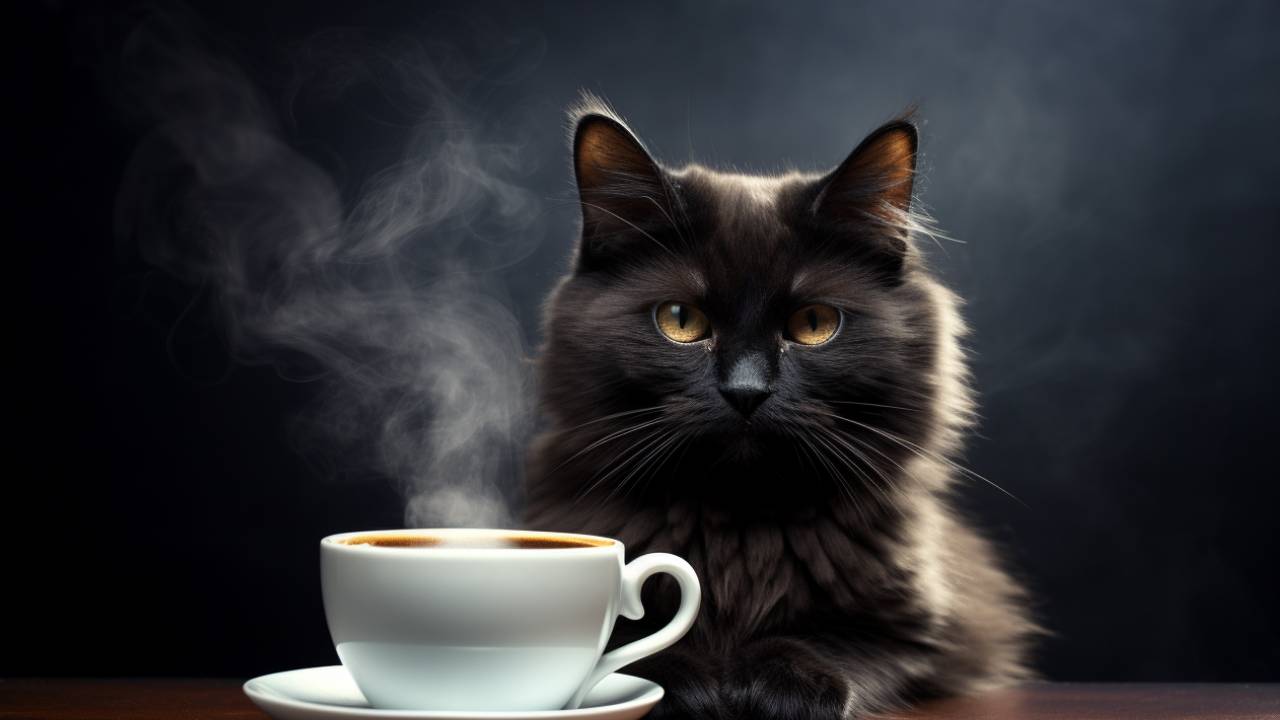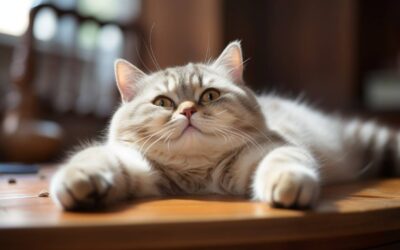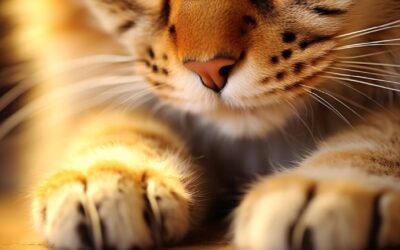Ah, the smell of freshly brewed coffee in the morning, that warm, comforting cup of liquid energy. Many of us can’t imagine starting our day without it. But if you’re a cat owner, you might wonder whether sharing your caffeine fix with your feline friend is safe.
After all, cats can sneak sips of whatever we’re drinking. So, what does caffeine do to cats? Can coffee kill cats? Let’s explore this potentially hazardous brew in the world of our beloved four-legged companions.
Can Coffee Kill Cats?
The short answer is yes, coffee can kill cats. Caffeine is a potent stimulant that affects cats more intensely than humans. Even a tiny amount of caffeine can lead to severe health problems and, in some cases, be fatal.
To put this into perspective, a cat weighing around 10 pounds (4.5 kilograms) can experience caffeine toxicity from ingesting as little as 200 milligrams of caffeine. An 8-ounce cup of brewed coffee contains about 95 milligrams of caffeine, so even a few sips could potentially risk your cat’s life.
The Curiosity of Cats
Cats are naturally curious creatures, always eager to investigate whatever piques their interest. This inquisitive nature often leads them to explore various household items, including that tempting cup of coffee on your table. However, it’s crucial to understand the potential dangers that lurk within that cup.
The Perils of Caffeine
Caffeine is a natural stimulant in coffee, tea, energy drinks, and numerous other beverages. It’s what gives us that much-needed boost in the morning. Yet, caffeine can have severe adverse effects on our feline companions. Cats are more sensitive to caffeine than humans, making even small amounts potentially harmful.
What Does Caffeine Do to Cats?
Caffeine affects cats in several ways, and the consequences can range from mild to life-threatening. Here’s a breakdown of how caffeine impacts your beloved furry friend:
- Increased Heart Rate: Caffeine stimulates the heart, causing it to beat faster. This can lead to palpitations and arrhythmias in cats, which can be especially dangerous if the cat has an underlying heart condition.
- Nervous System Stimulation: Caffeine acts on the central nervous system, leading to restlessness, tremors, and seizures in cats. These symptoms can be distressing and require immediate veterinary attention.
- Gastrointestinal Distress: Caffeine can irritate the lining of a cat’s stomach and intestines, resulting in vomiting and diarrhea. This can lead to dehydration and further complications if not addressed promptly.
- Increased Blood Pressure: The stimulant effect of caffeine can elevate a cat’s blood pressure, potentially causing hypertension. This can damage the cat’s organs, including the eyes, heart, and kidneys.
- Toxicity: Caffeine toxicity can occur in severe cases, leading to coma and death. Even relatively small amounts of caffeine can be lethal to cats.
My Cat Has Drank Coffee: What Should I Do?
If you suspect your cat has ingested coffee, it’s crucial to act swiftly. Time is of the essence when dealing with caffeine poisoning in cats. Here are the steps you should take:
- Contact Your Vet: Immediately call your veterinarian and provide as much information as possible about the amount of coffee your cat has consumed and when it happened. They will assess the situation and provide guidance.
- Monitor Your Cat: Keep a close eye on your cat’s behavior. Look for signs of caffeine toxicity, such as restlessness, vomiting, diarrhea, tremors, or seizures. The sooner you notice these symptoms, the quicker you can seek treatment.
- Do Not Induce Vomiting: Unlike some toxins, inducing vomiting is not recommended in cases of caffeine ingestion. It can worsen the cat’s condition and may lead to aspiration pneumonia.
- Treatment: Treatment for caffeine poisoning in cats may include inducing vomiting under veterinary supervision, administering activated charcoal to absorb the caffeine, providing intravenous fluids to prevent dehydration, and addressing any specific symptoms or complications.

The Risks of Secondhand Exposure
It’s not just direct ingestion that threatens your cat; secondhand exposure can also be harmful. When you brew a fresh coffee, the aroma fills the air with that familiar scent we love. While we may find it comforting, the smell of coffee can entice cats, and they may be tempted to investigate.
If your cat sniffs or licks coffee grounds or spills, it can lead to a lesser but still concerning exposure to caffeine. To avoid secondhand exposure, it’s essential to keep coffee and coffee-related products out of your cat’s reach and to remain vigilant about the potential dangers of secondhand exposure.
If you’re concerned about your cat missing out on the coffee-drinking ritual, there are numerous safe alternatives you can explore.
Alternatives to Coffee for Your Cat
If you’re concerned about your cat missing out on the coffee-drinking ritual, there are safe alternatives you can explore. Catnip-infused toys and treats can provide a stimulating experience for your cat without the dangers associated with caffeine.
Additionally, there are specially formulated cat-friendly beverages available in pet stores. These products are designed to mimic the flavor of coffee or tea but are caffeine-free and safe for feline consumption. Sharing one of these with your cat during your morning coffee routine can be a fun way to bond without risking their health.
Conclusion
In the debate over whether coffee is bad for cats, the answer is unequivocal: Yes, coffee is harmful and can be lethal to our feline friends.
Caffeine, found in coffee and many other beverages, affects cats more intensely than humans, leading to various health issues, from increased heart rate and gastrointestinal distress to seizures and, in extreme cases, death.
Instead of sharing your coffee with your cat, explore safe and enjoyable alternatives that will let you both start the day on the right paw.
FAQs

Can I give my cat decaffeinated coffee?
No, even decaffeinated coffee isn’t safe for cats. It may contain traces of caffeine, which can still be harmful.
Are there any coffee alternatives for cats?
Yes, consider catnip-infused toys or special cat-friendly herbal teas as caffeine-free alternatives for your feline friend.
What are common signs of caffeine poisoning in cats?
Watch for symptoms like restlessness, rapid breathing, dilated pupils, and tremors. If you see these, contact your vet immediately.
How much coffee is dangerous for my cat?
Even a tiny amount of caffeine, around 200 milligrams or less, can be dangerous for a 10-pound cat. It’s best to keep coffee away from them entirely.
Can coffee beans or coffee grounds be harmful to my cat?
Yes, coffee grounds and beans can contain concentrated caffeine. Keep them safely stored to prevent accidental ingestion.
Are there long-term effects of coffee ingestion for cats?
Repeated exposure to caffeine can lead to chronic health issues like heart problems, so it’s crucial to prevent any contact between your cat and coffee.






my kitty is quite active even without coffee